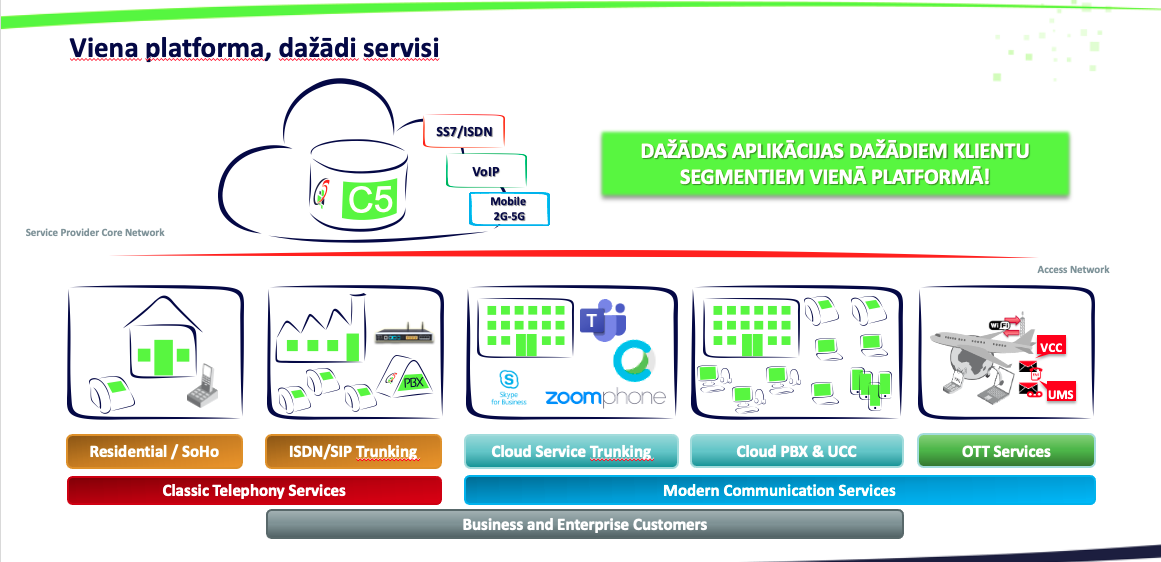Cloud or PBX?
Businesses nowadays aim to be more flexible than ever before, and this includes telephony enterprises. While in the past, it was essential to have a local PBX, the trend is currently moving towards cloud-based solutions. In this context it is important to note the essential technical differences between the two models, IP centrex and managed PBX.

| IP Centrex, or Cloud PBX | Managed PBX |
|---|---|
| The term Centrex is derived from Central Office Exchange. It refers to a physical system made available by a provider and used by all of the provider’s customers. Operational and maintenance costs are shared by all users, making it considerably more economical for the individual companies, who pay a fixed monthly price per workplace/extension. A company sources all of its telephony and its telephone system from just one provider. The advantages are clear to see: | A managed PBX is of more interest to companies who want an individual solution. In this case it is a cloud-based telephone system only accessible to the company and its staff. This enables a level of customization that is not possible on shared servers. There are however disadvantages: |
| -Maintenance and updates are carried out automatically -Different solutions, such as basic, comfort and premium, can be easily booked and cancelled as needed -System operation and administration are designed to be as simple as possible | maintenance and update tasks must be carried out by the company itself, and the overhead for administration must also be calculated, which can be cost-prohibitive for small and medium-sized companies. |